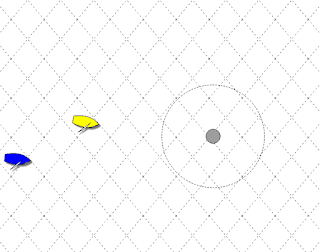Lessons from BUSA 2024
The major lesson is that you cannot judge a course from the shore. You need to get out on the water and eventually you have to bite the bullet.
On the second day the wind kept swinging to the south, when the forecast said it would go the other way. The Finish boat ended up downwind of the start and we had three runs and a one sided beat to finish. As always the first beat was OK.
The problem was having a dedicated mark layer there was a tendency to rely on them rather than have the entire Umpire team get involved. There is a perception that moving the finish takes longer than trimming the course but this need not be the case, particularly if the boat is towed by it's anchor warp (settling time is much reduced) There were delays, mainly for boat repairs. Here again experience is the key to reducing the time taken.
I was surprised at how soon we come off the water - always a difficult decision for the race officer - and quite right on this occasion. The problem is exacerbated in team racing as you are forcing boats, not owned by individuals, into close proximity and the skill level is quite variable. So what would be reasonable for fleet racing is too much for Team Racing. Once ashore you need a big change to be convinced that it is worth re-launching and time quickly becomes your enemy.
There is a bunker mentality at big events. You are assigned a job and you stay in your bunker. Communication must follow the assigned route, so you bite your lip and stay silent. Step out of your bunker and you step on someone's toes. I guess I am not a team player!
I am not convinced that having so many umpires improves the game. However, having an American along provided a real insight. Their use of radios could be really useful but most UK Umpires are not used to listening to them - partly a chicken and egg problem I suspect. Perhaps better equipment - headsets were talked about at one stage.



